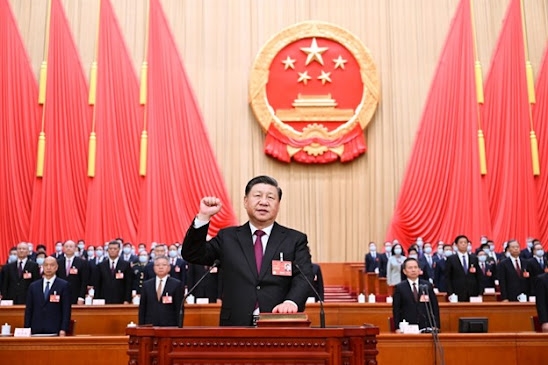
Why were no fundamental reforms to improve the Chinese economy introduced during the Chinese Communist Party’s vaunted Third Plenum (July 15 to 18, 2024)?
Did the CCP not hear the “calls by many economists” for market reforms, etc., to improve conditions that the Asia Society Policy Institute describes as characterized by “anemic confidence, inadequate consumption, and rising trade frictions”?
This diagnosis is itself susceptible to criticism. A poor person may suffer from “inadequate consumption,” but only because of inadequate production. If persons in a government-hampered economy are willing and able to work for a living, their inadequate production—lack of employment, underemployment, or whatever forms it takes—is likely explained by sundry coercive barriers to production. A focus on “inadequate consumption” or “inadequate demand” is an impoverished Keynesian way of looking at the problem of a rickety economy, which can only be rendered ricketier in the long run by such alleged cures as credit expansion and other government intervention. Freeing up the market is a sensible remedy. Rejiggering the totalitarian state’s coercive manipulations is not.
In any case, if basic reforms of some kind are needed to strengthen China’s economy, why did the Third Plenum with all its sessions and pronouncements fail to deliver them?
The Institute’s answer: Xi is more concerned about maintaining total control over everybody and imposing his ideological vision (“Why Did Xi Jinping Stick to His Guns at China’s Third Plenum?,” Neil Thomas, July 25, 2024).
The final focus, on “strengthening Party leadership,” reaffirms Xi’s view that centralized power improves government performance. The record of creation says that a “distinctive feature” of the decision is that it “pays more attention to system integration” by “strengthening the overall planning” of reforms, thereby ensuring “greater cohesion, synergy, and efficiency.” The decision essentially proclaims that Beijing will have a more visible hand in ensuring that all parts of the economy move toward Xi’s desired ends.
Another Asia Society Policy Institute piece, “At China’s Third Plenum Xi Jinping Stays the Course” by Karen Hui, tells us:
While Xi’s first plenum in 2013 sparked optimism that China would embark on a process of economic liberalization, his tenure since has been marked by a steady tightening of party control over the economy. That was evident in this year’s plenum, which showed that national security and technological self-reliance remain top priorities. Embedding party cells within private businesses, encouraging governments to purchase small stakes in private companies for outsized influence, and prioritizing “high-quality development” centred on homegrown innovation all point to Xi’s belief in reining in rather than unleashing market forces. Maintaining this course is likely to discourage investment from China’s private entrepreneurs and prompt additional diversification by multinational businesses seeking to insulate themselves from China’s increasingly statist economy.
Not much more of this companion essay can be quoted before we get to sentences about the need for China to “boost domestic consumption” in order to allay “global anxiety over deflation and overcapacity”: i.e., advice to engage in more pulling of central-planning levers and twirling of central-planning knobs.
The author should have stuck to elaborating ways and means of “unleashing market forces.” If China wants to fix its economy, let it do what John Galt would tell it to do: “Get the hell out of my way!”
But if that were the priority, maintaining the power of Xi Jinping and the Chinese Communist Party, let alone tightening it, could not be.
Also see:
China Digital Times: “Party propagandists promote, then backtrack on ‘Xi as reformer’ narratives amid Third Plenum“
China Daily: “Communique of the Third Plenary Session of the 20th Central Committee of the Communist Party of China“
”At the session, a call was issued to the whole Party, the entire military, and Chinese people of all ethnic groups to stay closely rallied around the Party Central Committee with Comrade Xi Jinping at its core….”
Mises.org: Deflation and Liberty
“Deflation is not inherently bad, and it is therefore far from being obvious that a wise monetary policy should seek to prevent it, or dampen its effects, at any price.”





